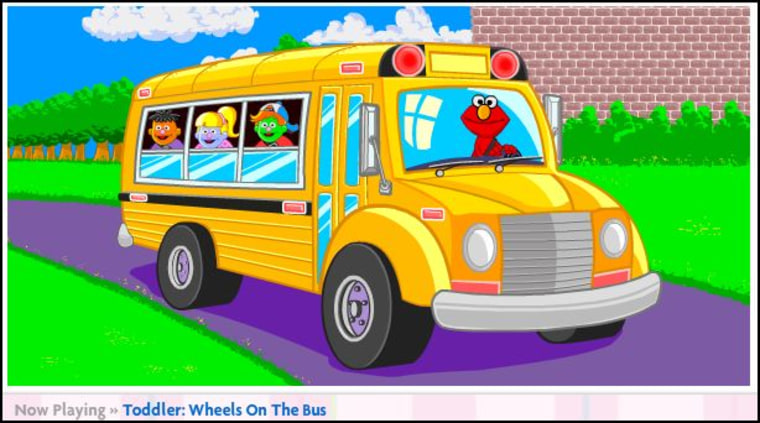I want to play video games with my kid … and it turns out, you want to play video games with your kids too.
Last week I wrote about looking forward to and about how I wonder whether, at 2 years old, he’s old enough to jump into the wild world of video gaming.
After all, there are plenty of online games, video games and specialized game machines aimed at toddlers and even babies. But there’s also a mountain of conflicting information about how video games and other electronic media affect our impressionable tots.
And so I asked you, when do you think children are old enough to play video games?
Of the many readers who responded, the vast majority of you said that you have felt comfortable letting your youngest children play games — children as young as 2, 3 and 4 years old — and have found gaming to be a positive experience in your lives and your children’s lives.
“My 3 ½ half-year-old son and I co-op with ‘LEGO Star Wars’,” wrote Anton from Mississauga, Ontario. “He has a blast playing alongside his dad. We thoroughly enjoy our bonding while gaming.”
Many of you said that you had let your children play the VTech and LeapFrog children’s gaming machines and found their games educational. And you recommended sites like SesameStreet.org as well as PBSkids.org, Kneebouncers.com, NickJr.com and Noggin.com as sources of good Web games. But nearly all the parents who wrote also emphasized that setting limits and making sure children have balance in their lives is critical.
“I don't think it's a question of when a child is old enough. I think it is a question of effective, responsible parenting,” wrote Lisa Cavataio from Freeville, New York. She said her 9-year-old son and 7-year-old daughter have owned Leapsters for three years and will be getting Nintendo DS machines this year. She said video games function as an incentive and reward in her household. “Our son, for example, can earn up to 2 ½ hours a week to play ‘LEGO Star Wars’ if he does his work in school. Video games are not allowed during the week at all, only weekends and only for the time they've earned.”
Skills for a digital age
Many of you wrote to tell me how video games have helped your child learn critical skills. “Our son started playing video games when he was 3. He is almost 7 now, still in the first grade and his teacher has tested him reading with comprehension at a sixth grade level,” wrote Tina from Mt. Juliet, Tenn. “As much as I hate to admit it, ‘Pokemon’ had a lot to do with those great reading skills.”

“My 3-year-old daughter has been playing video games since her second birthday,” said Eric Burton of Indianapolis. “I work in IT and basically learned my trade growing up with my own PC. Video games are a doorway for her to learn about computers and even give her a head start on a future career.”
Dave Evans, author of the book "Social Media Marketing: An Hour a Day" wrote to say that he allowed his son to start playing games when he was 18 months old. “Our son is now eight. He has an absolutely natural command of digital technology. Ultimately, he and his peers are growing up in a digitally connected, information-driven world. To not recognize this and begin to build skills at an early age — right alongside reading, creative writing, mathematics, logic and similar core skills — is to fail to prepare the next generation for their role in managing the continuous change that surrounds all of us.”
Several parents of children with disabilities reported that video games have been a great way for their children to connect and learn.
Lenore S. Clemens of Vancouver, B.C., wrote to say that games have been good for her 12-year-old son with developmental disabilities. “Video games are great for developing his eye-hand co-ordination and a lot of cognitive skills. Plus, he can play with friends and be on a more even playing field once he knows the game, and have conversations about them, and sometimes even be able to teach others!”
Some “kids” wrote to tell us about the joys of playing games with their parents.
“It actually takes me back to memories of my dad, because as a toddler we would always play ‘Sonic the Hedgehog’ on the Sega Genesis together,” wrote Logan Miller of San Antonio, Texas, an 18-year-old freshman in college. “Now, one of my favorite things to do is play ‘World of Warcraft’ with him. When I go home this summer I'll get some major hours in with him on our Horde Death Knights!”
Sprouting horns and pitching fits
However, not everyone has had a positive experience allowing young children to play games.
A reader calling herself “Worried Mom” wrote to say that her son began playing toddler-style games at age 3 while in day care. “Today he is in high school and shows an inordinate attraction to the games instead of wanting to socialize. I am concerned that the games might control him, rather than the other way around.”
A mother from Houston, Texas, wrote to say that when her daughter began playing her grandmother’s DS she “sprouted horns immediately. She became completely inattentive to the world around her, she pitched a fit when asked to put it down for mealtimes, and worst of all, she stopped going outside — something she LOVES.”
Mike Brooks, a father of boys age 2 and 5 and an Austin-based psychologist who did his dissertation research on the effects of video game violence on kids, says it’s not easy deciding when to allow children to play video games.
“The brains of young children are developing rapidly and there is some research to suggest that exposure to highly stimulating media might ‘wire’ the brains of young children such that they grow accustomed to intense environments. Such children might become bored and inattentive when in less stimulating (or traditional) environments,” he explains. “On the other side, the research on neuroplasticity indicates that the brain really is like a muscle in that it can grow in response to stimuli. Video games contain rich environments with many complex cognitive challenges that give brains quite a workout. There is a growing body of research to support that video game play improves cognitive functioning in many areas.”
Brooks enjoys playing video games with his oldest son but believes it’s best to err on the side of caution, limiting exposure to electronic media when children are younger than 3 and gradually allowing more as they grow. Most importantly, careful supervision is key, he says.
And he pointed out something I’ve noticed with my own child. When my son plays the game “Peggle” with his grandfather, he is active, engaged and happily interacting with an adult. But when he watches the limited amount of TV I allow, he zones out. Trying to speak to him is like trying to speak to a zombie.
Wrote Brooks, “If I have to choose between my child watching ‘Tom & Jerry’ or playing ‘Super Mario Galaxy,’ I encourage him to play a video game because I think it is a better workout for his brain than the passive experience of TV viewing.”
